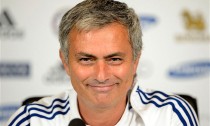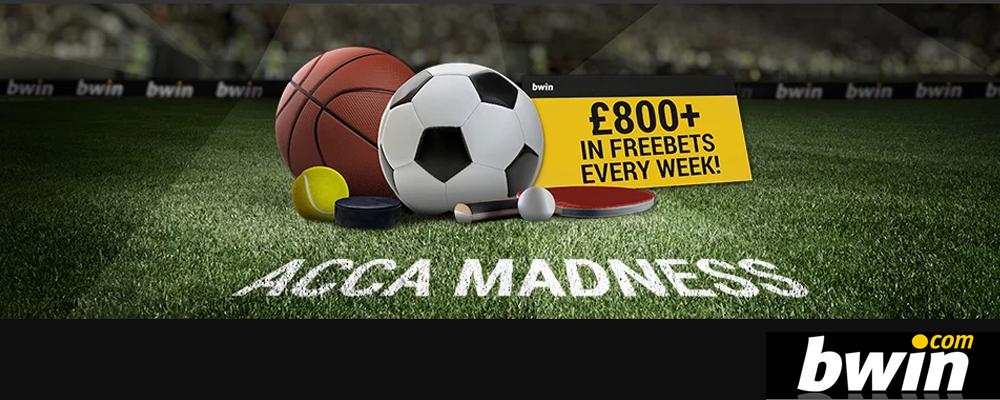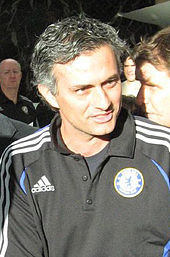
Mourinho rejects Tottenham after leaving Chelsea.
Mourinho left Stamford Bridge in 2007 after some different oppinions than Roman Abramovich but his chance to move to White Hart Lane was blocked by an exit clause which prevented the 52-year-old from managing in England for two years.
The Chelsea manager has also reiterated his desire to finish his career at Chelsea but admits he would remain in English football if he were to ever leave Stamford Bridge.
Murinho’s history at Chelsea
Mourinho moved to Chelsea in June 2004, becoming one of the highest paid managers in football with a salary of£4.2 million a year, subsequently raised in 2005 to £5.2 million.[32] In a press conference upon joining the English side, Mourinho said, “Please don’t call me arrogant, but I’m European champion and I think I’m a special one,” which resulted in the media dubbing him “The Special One”.[33]
Mourinho recruited his backroom staff from Porto, consisting of assistant manager Baltemar Brito, fitness coach Rui Faria, chief scout André Villas-Boas, and goalkeeping coach Silvino Louro. He retained the services of Steve Clarke, a long-serving former player at Chelsea, who had also performed an assistant managerial-type role under previous managers at the club. In terms of spending, Mourinho carried on where his predecessor Claudio Ranieri left off, as, bankrolled by Roman Abramovich, he spent in excess of £70 million in transfer fees on players such as Tiago (£10 million) from Benfica, Michael Essien (£24.4 million) from Olympique Lyonnais, Didier Drogba (£24 million) fromOlympique de Marseille, Mateja Kežman (£5.4 million) from PSV, and Porto pair Ricardo Carvalho (£19.8 million) and Paulo Ferreira (£13.3 million).
2004–05
Under Mourinho, Chelsea built on the potential developed in the previous season. By early December, they were at the top of the Premier League table and had reached the knock-out stages of the Champions League.
He secured his first trophy by winning the League Cup against Liverpool 3–2 (AET) in Cardiff. Towards the end of the match, Mourinho was escorted from the touchline after putting his finger to his mouth in the direction of Liverpool fans, as a response to taunts directed towards him whilst Liverpool were leading, before the equalising goal.
Chelsea met Barcelona in the Champions League round-of-sixteen, a highly contested match where the Blues lost away in the first leg 2–1 but advanced on aggregate winning at home 4–2. Mourinho missed the chance of back-to-back Champions League successes when Chelsea were knocked out of the competition by a controversial goal in the semi-finals by eventual winners Liverpool.[34]
Under Mourinho, Chelsea secured their first top-flight domestic title in 50 years, setting a string of English football records in the process, including the most points ever achieved in the Premier League (95), and the fewest goals conceded (15).
2005–06
Chelsea started the next season well. They defeated Arsenal 2–1 to win the 2005 FA Community Shield, and topped the Premier League from the first weekend of the 2005–06 season. Chelsea beat rivals Manchester United 3–0 to win their second consecutive Premier League title and Mourinho’s fourth domestic title in a row. After the presentation of his championship medal, Mourinho threw his medal and blazer into the crowd. He was awarded a second medal within minutes which he also threw into the crowd.
2006–07
The 2006–07 season saw growing media speculation that Mourinho would leave the club at the season’s conclusion, due to alleged poor relations with owner Roman Abramovich and a power struggle with sporting directorFrank Arnesen and Abramovich advisor Piet de Visser. Mourinho later cleared doubts regarding his future atStamford Bridge, stating that there would only be two ways for him to leave Chelsea: if Chelsea were not to offer him a new contract in June 2010, and if Chelsea were to sack him.[35]
The signing of Ukrainian striker Andriy Shevchenko in the summer of 2006 for a club record fee would also prove to be a point of contention between Mourinho and Abramovich. Shevchenko, at the time of his signing, was one of the most highly regarded strikers in Europe during his time with Milan, where he won the Champions League, Scudetto, and Ballon d’Or awards in his seven years in Milan. Chelsea had attempted to sign Shevchenko in the preceding two years but Milan rebuffed Abramovich’s interest in him. Shevchenko’s first season at Chelsea was viewed as a major disappointment by the Chelsea fans as he only scored four league goals and 14 in all competitions.
Shevchenko’s strike partner, Didier Drogba, had the highest scoring season of his career that year and this led Shevchenko to be dropped from the starting line-up towards the end of the season by Mourinho. Notably, in the Champions Leaguesemi-final match at Anfield, Shevchenko was not even included on the bench. Abramovich’s insistence on Mourinho playing the Ukrainian was widely viewed as a further source of friction between the two men. The other high profile arrival besides Shevchenko was German captain Michael Ballack, a free agent from Bayern Munichwho was signed to strengthen the midfield. The Icelandic striker Eiður Guðjohnsen, departed the club for FC Barcelona.
Despite the unrest Chelsea won the League Cup again by defeating Arsenal at theMillennium Stadium. The possibility, however, of the quadruple was brought to an end on 1 May 2007 when Liverpool eliminated Chelsea from the Champions League on penalties at Anfield, following a 1–1 aggregate draw. Days later, Chelsea drew 1–1 with Arsenal at the Emirates Stadium, which secured the Premier League title for Manchester United. This was Mourinho’s first season without a league title win in five years. Mourinho led Chelsea to a 1–0 victory against Manchester United in the 2007 FA Cup Final, winning in the first final to be played at the rebuilt Wembley Stadium. This was his first FA Cup win which meant that he had won every domestic trophy available to a Premier League manager.
There was, however, to be further friction between Mourinho and Abramovich when Avram Grant was appointed as Director of Football, despite objections from Mourinho. Grant’s position was further enhanced by being given a seat on the board. In spite of these tensions, the 2007–08 transfer season would see the departure of Dutch wingerArjen Robben to Real Madrid and French midfielder Florent Malouda moved to Chelsea.
2007–08
In the first match of the 2007–08 season, Chelsea beat Birmingham City 3–2 to set a new record of 64 consecutive home league matches without defeat. Despite with it surpassing the record set by Liverpool between 1978 and 1981[36] the start to the 2007–08 season was less successful as previous starts. The team lost at Aston Villa and followed this with a goalless draw at home to Blackburn Rovers. Their opening game in the Champions League saw them only manage a 1–1 home draw against the Norwegian team Rosenborg BK in front of an almost half-empty stadium.
Mourinho unexpectedly left Chelsea on 20 September 2007 “by mutual consent,” although there had been a series of disagreements with owner Roman Abramovich.[5] The Chelsea board held an emergency meeting and decided it was time to part with their manager. Mourinho left as the most successful manager in Chelsea’s history, having won six trophies for the club in three years. He was also undefeated in all home league games. Avram Grant succeeded José Mourinho as Chelsea manager but failed to win any trophies in his year in charge and would be sacked at the end of the 2007–08 season. Grant’s squad managed to reach the final of the Champions League (something Mourinho failed to achieve in his three years at Chelsea), reach the final of the League Cup, and maintained the unbeaten home streak in the Stamford Bridge. Grant’s Chelsea also finished second in the Premier League.
This article uses material from the Wikipedia article http://en.wikipedia.org/wiki/Jos%C3%A9_Mourinho








Leave a reply